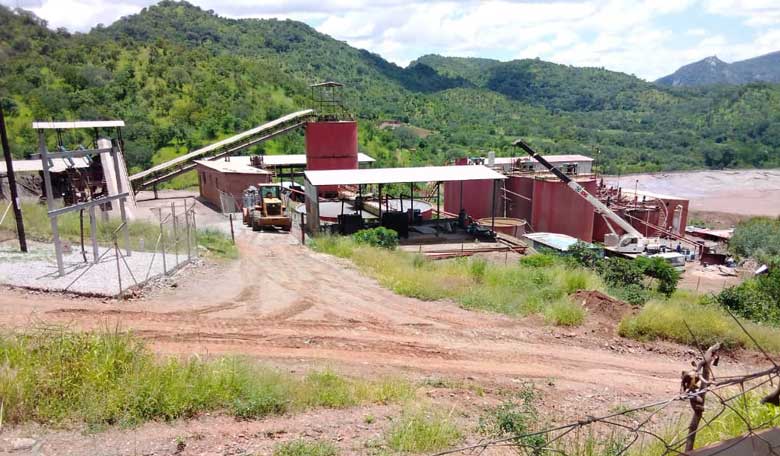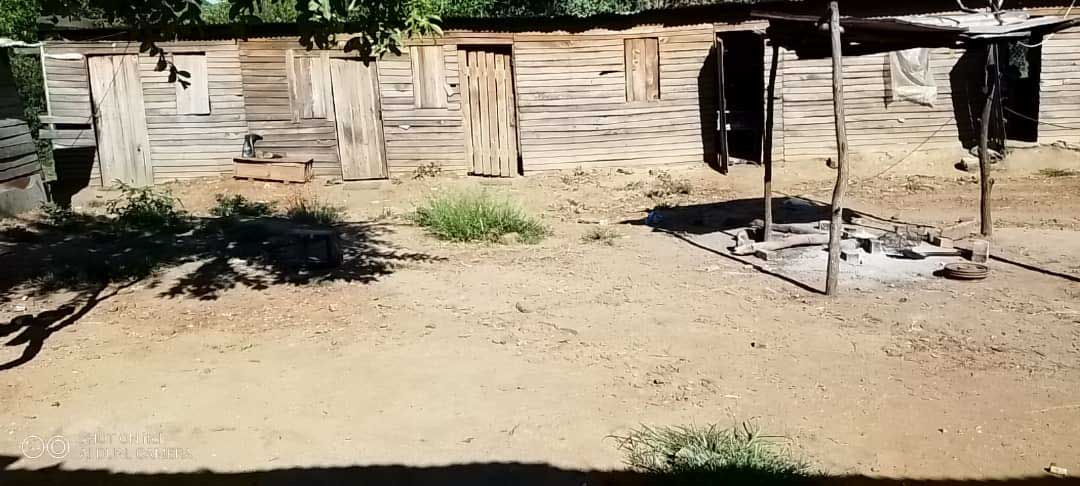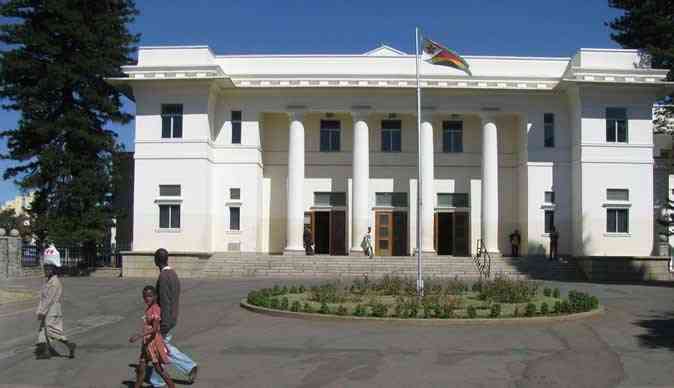
Two years ago a small gold mine tucked in Mashonaland East’s Mudzi area hogged the limelight when three workers were crushed to death after two ore wagons fell into an inclined mine shaft, resulting in the horrific accident.
The shocking deaths at Kunyu Mine in Banze shook Zimbabwe’s mining industry and threw the spotlight on the safety deficits, especially in the small-scale mining sector.
A month-long investigation has now shown that there is disgruntlement at Kunyu Mine over what workers say are dangerous working conditions and alleged ill-treatment by mine owners.
Workers’ agony
It emerged that workers at the Chinese-owned mine are allegedly subjected to poor working conditions, are poorly paid, work long hours and are not provided with personal protective equipment (PPE) in violation of Zimbabwe’s mining laws.
The probe by The Standard in collaboration with the Information for Development Trust (IDT) — a non-profit organisation that supports journalists in Zimbabwe and in the region to investigate issues of corruption in the public sector and bad governance — showed that workers at the Chinese operation were still exposed to harm even after the December 1, 2020 disaster.
Documents, interviews with unionists and workers at the Kunyu Mine located about 40km from Mutoko centre, revealed wanton disregard for local labour laws to a point that the safety of employees at the mine is not guaranteed.

Correspondence from the Progressive Mining and Allied Industries Workers Union of Zimbabwe (PMAIWUZ), which has carried out extensive investigations into the alleged abuse of workers at the Chinese-owned mine and the National Employment Council (NEC) for the mining industry revealed that the employees blame the unsafe working environment for their colleagues’ deaths.
- Chamisa under fire over US$120K donation
- Mavhunga puts DeMbare into Chibuku quarterfinals
- Pension funds bet on Cabora Bassa oilfields
- Councils defy govt fire tender directive
Keep Reading
They said the accident was not properly investigated because the Chinese mine owners appeared to enjoy protection from the authorities.
“There are issues to do with underground safety, especially for some of us who work underground,” said one of the workers speaking on condition of anonymity as he feared victimisation.
“We go underground without safety shoes.
“There was an incident in 2020 where three people died, but the story never went far in as far as investigations are concerned because the Chinese boast that they have connections at the top.”
No safety
This publication obtained images of workers at the Kunyu Mine shafts without safety shoes and the dilapidated infrastructure they use as their accommodation.
The workers alleged that the mine did not conduct any security drills and there is limited security training for employees, which contributed to accidents.
There were also concerns about security guards at the mine, who are allegedly made to report for work every day against the statutory requirement of 15 days a month.
“The same guards are not trained in explosives, but are sometimes made to work with them and when they do, their working hours are extended to 18 hours without overtime and night allowances,” another miner said.
At least 118 workers have since been fired by the company after the December 2020 disaster documents from PMAIWUZ to the NEC show.
The workers were dismissed without benefits for demanding overtime allowances, night and underground allowances as well as other benefits.
Another group of 85 former workers is challenging the dismissals and is accusing the Chinese miner of flouting labour laws by underpaying workers and not guaranteeing their safety.
There is also another group of 35 that is challenging the mass dismissals on the basis that labour regulations were ignored when they were shown the door.
PMAIWUZ said the workers were dismissed without any hearings and accused the Chinese of running the mine like a “quasi-military camp.”
“The applicants were just called to the office by one Mr Gu Da Liang on different occasions and told that they were fired, they were given their salaries and told to leave the mine premises,” the union said.
“This is unfair labour practice and the respondent is operating the mining concern like a quasi-military camp.”
A letter by the NEC to the Chinese miner dated December 6, 2021 said Kunyu Mine violated the Labour Act by “failing or refusing, deliberately and willfully to abide” by collective bargaining agreements of the mining industry.
“The respondent is not paying salaries according to the CBA (collective bargaining agreement) as amended from time to time.
“The respondent is paying each worker US$6.92 per day or US$182 per month regardless of grade or holidays and off days as provided by the statutes,” reads the letter from the NEC in part.
“The respondent should be ordered to pay salaries according to the CBA and back pay according to the quantum of claims attached.
“The respondent is underpaying the applicant in clear violation of the CBA and the Labour Act Chapter 28:01 as amended.”
Illegal deductions
The workers also accuse the mine owners of illegally deducting money from their wages after accusing them of committing various offences.
“(Gu Da Liang) is in the habit of forcefully deducting money from our salaries for even the smallest of offenses even mistakes,” said a disgruntled employee.
“He uses the phrase ‘cut money’ to mean deducting from salaries and he does that to punish workers for minor mistakes.”
A list of deductions was shown to this publication where an employee saw US$50 being deducted from his salary for losing a torch.
A letter dated January 25, 2022 showed that the NEC wanted an urgent inspection of the mine as it accused its owners of ignoring concerns raised around the safety of employees and their welfare.
Kunyu Mine, which is into gold production and employs over 300 workers, owes employees a staggering US$351 446.90 with US$100 392.93 being money owed to security guards after it was established that the company was grossly under paying them.
The other US$113 456.36 is back pay for general workers, who were also being underpaid, the documents say.
Another US$6 975 is for outstanding underground allowance and overtime.
Tendai Marisa, the designated agent for the NEC who is handling the Kunyu Mine case, refused to comment saying he was not authorised to speak to the media.
The Kunyu management did not respond to requests to comment on the accusations by the workers.
Red flag
Japhet Moyo, Zimbabwe Congress of Trade Unions secretary general, said they were aware of the problems at Kunyu Mine, which he said were common at Chinese-owned firms operating in the country.
“It is a worrying issue because the initial assessment is that there are a lot of issues that range from underpayment, victimisation of workers, denial of workers’ rights to join unions and violation of their rights,” Moyo said.
“We have had issues where workers come with their hands injured or even chopped off by machines, but you then discover there was no report sent to the National Social Security Authority (NSSA).
“The injured workers are just taken to the hospital for that particular injury and then neglected with no salary and are send home.
“Such cases are many in Chinese investments.”
The ZCTU boss said it was difficult to tackle problems faced by workers at Chinese owned businesses because in most cases the owners seemed to enjoy protection from the authorities.
Govt overwhelmed
Mines and Mining Development deputy minister Polite Kambamura said the government was struggling to access mines for regular inspections because of lack of resources.
Kambamura said the mining industry had expanded rapidly since 2018 as President Emmerson Mnangagwa’s government pushed for a US$12 billion mining industry by 2023, which he said was making it difficult to inspect the mines.
“We are structured in such a way that each province has mining inspectors that do routine visits to mining sites to check on issues to do with compliance on safety and health issues to ensure they are complying with set structures,” he said.
“If ever there is a breach, we bring them to account through fines and even escalate matters to the courts and cancel their licenses.
“We recently purchased vehicles to capacitate the inspectors, but as you may be aware, the sector is expanding because of the $12 billion issue.
“The vehicles we bought will bridge the gap, but we still need more.”
A recently produced Zimbabwe Environmental Law Association (Zela) investigation titled: The Handbook of Zimbabwe-China Economic Relations says widespread abuse of local workers at Chinese-owned mines were unearthed during Covid-19 lockdowns.
“We learnt that even before Covid-19, workers were not being provided with safety clothing,” reads the Zela handbook in part.
“Community leaders, who approached some of the mining companies on this, indicated that they were told that their workers are temporary and on fixed term contract basis, thus they cannot be buying safety clothing every time a contract ends, and a new worker has to come in.
“Another excuse used was that the safety clothing is being shipped from China and it takes long.”
It added: “The research team learnt from the communities that Chinese mining companies rarely abide by the minimum wage requirement as per the labour regulations and that there is overwork at the mining sites and no proper working timetable with workers working a 12 hour day.”
In February, the Chamber of Chinese Enterprises in Zimbabwe urged the government to apply the law without fear or favour when investors from the Asian country violate local laws.
The Chamber said Chinese investors in Zimbabwe were being unfairly targeted because of transgressions by a few.
Several attempts to contact the mine owners were fruitless with a public relations agent working with one firm initially promising to engage them for their comment.
Despite several phone calls and messages sent to him, the agent went quiet and was no longer picking calls or responding to texts.
In the first inquiry, the agent promised to look into the matter and confirmed he had sent messages to the company management.
Little is known about the company ownership in Zimbabwe, but searches on the internet showed that a company named Kunyu Mining was registered in China while another is registered in Singapore and both are involved in gold production.
Documents also show that unions were facing difficulties in communicating with Kunyu Mining management for several months until authorities intervened.
“Efforts to engage Kunyu Mining management were fruitless up until a case was registered before NEC Mining in November 2021,” the papers added.










